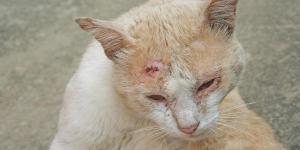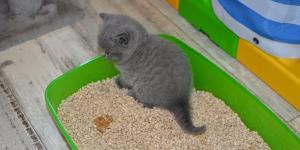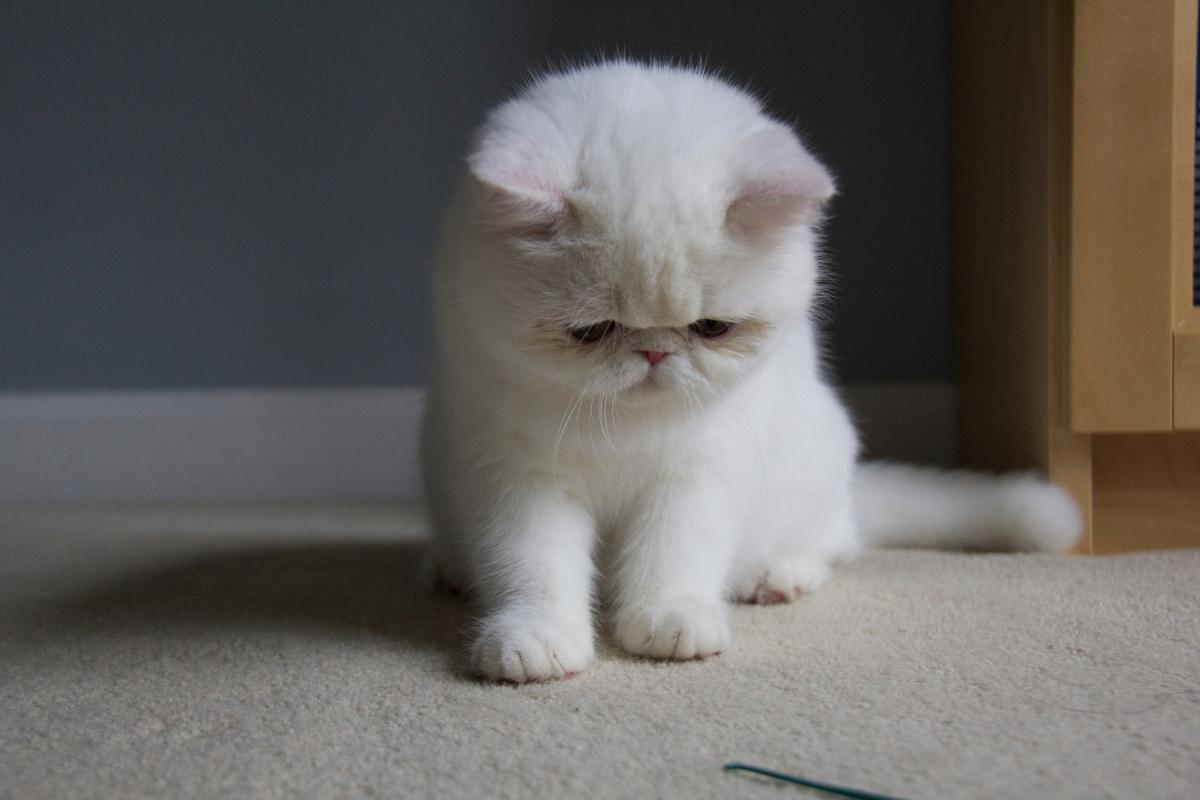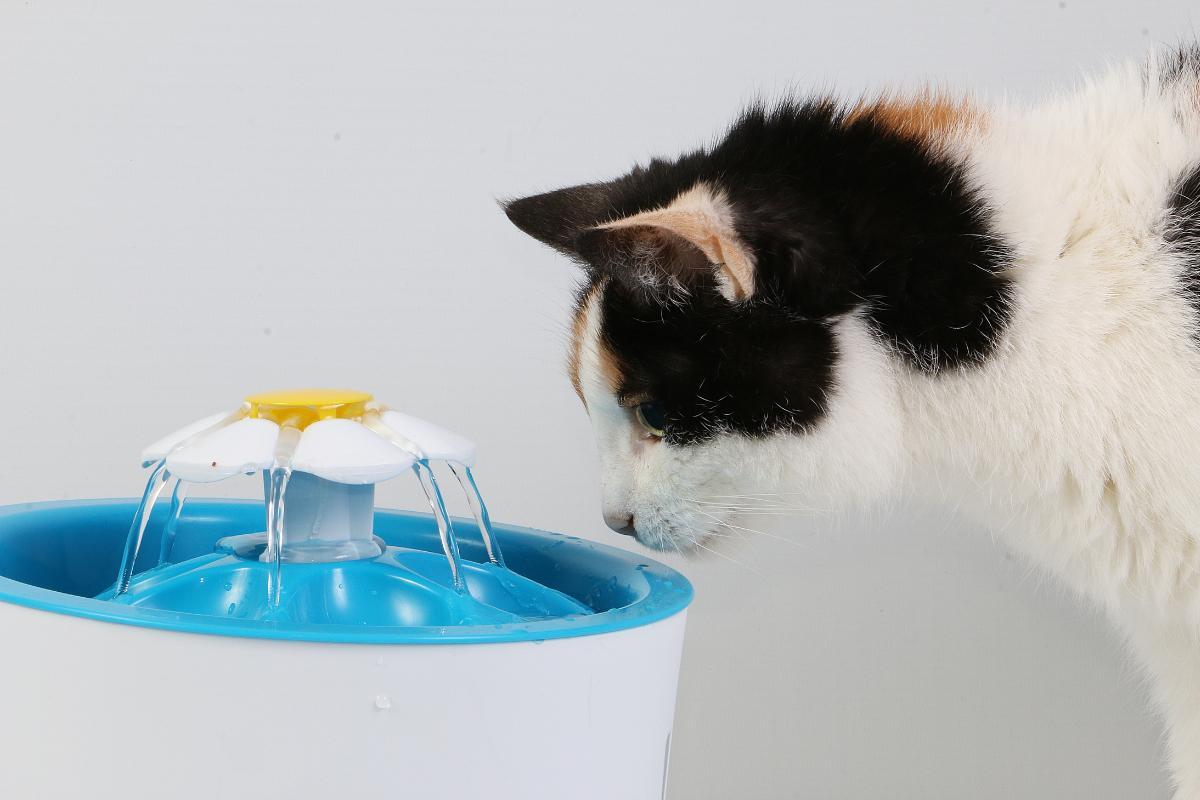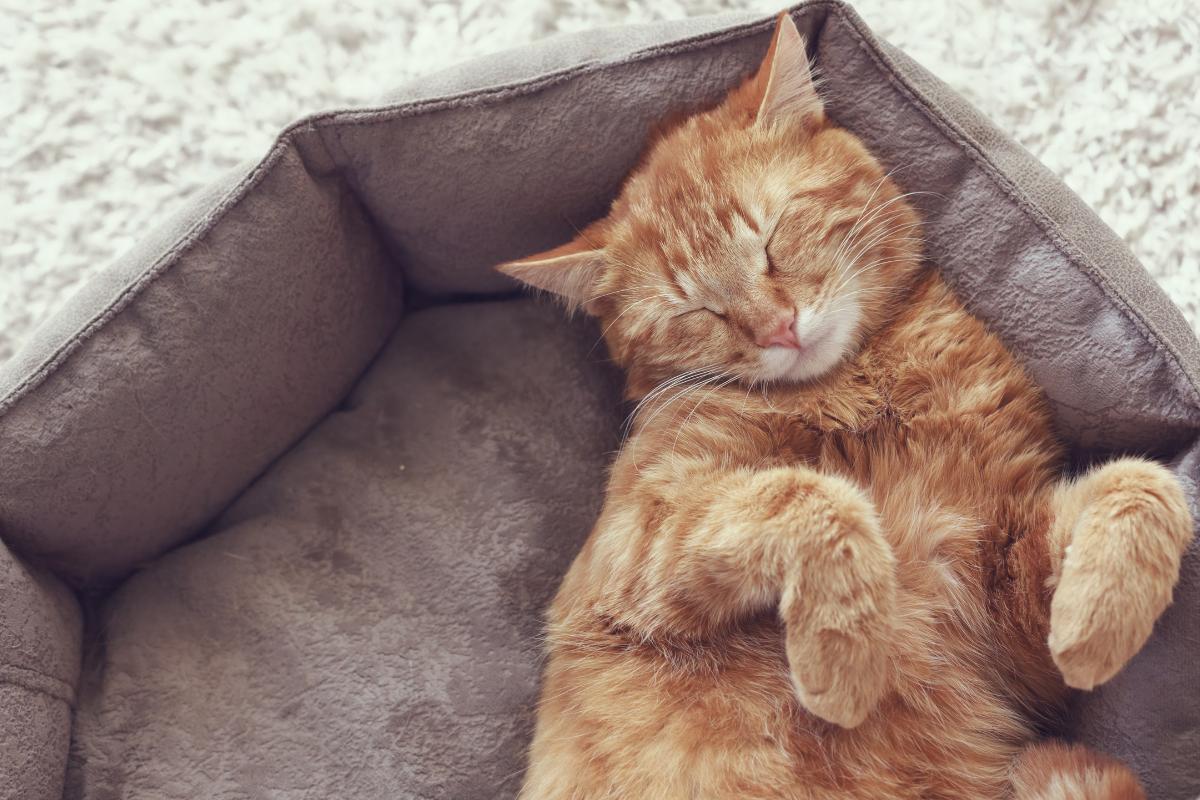Cat Laryngitis Home Treatment

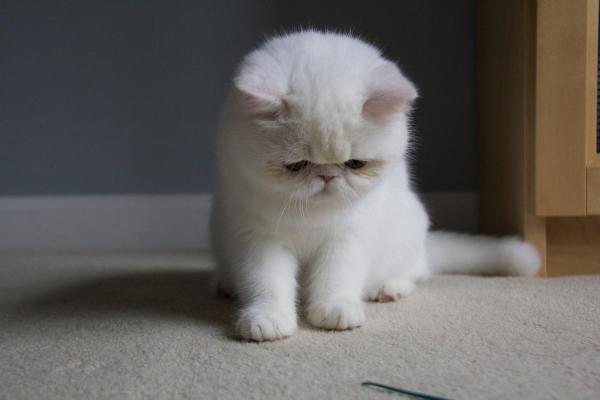

See files for Cats
Laryngitis in cats is a symptom rather than a disease. It manifests as inflammation of the larynx, often resulting in a hoarse voice. While it is most commonly associated with respiratory infections, it can be a symptom of various health issues. Some of these can be serious, such as trauma, poisoning or even tumors in the throat. Persistent laryngitis must be diagnosed by a veterinarian, especially if it is accompanied by other symptoms. They will best diagnose the underlying problem that results in a cat losing their voice and prescribe the best treatment. Home remedies can be used to supplement this treatment and best ensure a quick recovery, but they are never to be used as a replacement for veterinary medical treatment.
At AnimalWised, we explain what options are available for cat laryngitis home treatment. These effective remedies for a hoarse voice in cats will help your feline to recover and can ease the pain which often accompanies laryngeal problems.
What is laryngitis in cats?
Feline laryngitis is a general term used for inflammation of the larynx. Commonly known as the voice box, it is the organ which helps the cat to make various vocalizations. These include meowing, purring and mewling. It also helps to avoid aspiration by preventing food from entering the respiratory tract. In is also important for regulating their breathing.
When a cat has laryngitis, the larynx becomes inflamed. This is often accompanied by redness and pain. This inflammation affects the effectiveness of the larynx in carrying out is various functions. It can affect the quality of vocalizations, resulting in hoarseness or the cat losing their voice altogether in serious cases. As we have pointed out, laryngitis is not a disease in itself, but a symptom of other medical conditions.
Some of the causes of laryngitis in cats include the following:
- Respiratory infections: often viral or bacterial, including the common cold. They are most associated with the upper respiratory tract as this is where the larynx is located.
- Irritation: substances can enter the respiratory tract and irritate the larynx, such as smoke inhalation or chemical exposure. Excessive meowing in the cat can also cause irritation and subsequent laryngitis.
- Allergies: some cats may have sensitivities to certain allergens which can be inhaled and result in inflammation. Serious reactions can cause the cat to enter anaphylactic shock.
- Tumors: the larynx of the cat is covered in a mucus membrane, tissue which can develop tumors known as polyps. These are often benign, but they can cause chronic laryngitis. More serious tumors can also occur on or near the larynx and result in vocal changes. These include malignant cancers.
- Hyperthyroidism: enlargement of the thyroid can put pressure on the larynx and result in a hoarse voice.
- Laryngeal paralysis: this is a condition where the nerves and muscles of the larynx are no longer able to function, resulting in an altered voice and the increased risk of aspiration. While there may be some neurological element, the cause of this condition is often idiopathic (i.e. there is no known cause). Fortunately, it is rare in felines.
The causes of feline laryngitis are varied, so we need to look out for other symptoms which can help the veterinarian carry out an accurate diagnosis. For example, the inhalation of toxic substances will also likely result in lethargy and excessive drooling, in addition to the cat losing their voice. Treatment of laryngitis in cats will depend on this cause.
We share some natural remedies for cat laryngitis home treatment in the next sections. These should never be used as a replacement for veterinary medical treatment, but you can ask your veterinarian if they can be used to supplement it.
1. Proper hydration
As a general rule, cats do not drink much water. In the wild cats achieve much of their hydration from the prey animals they consume almost exclusively. Domestic cats often eat dry kibble which has a much lower moisture content. This is why we should always have fresh and clean water available to our cat at all times.
Poor hydration can affect the functioning of their organism. It hinders lubrication of the larynx, resulting in the cat becoming hoarse. It can also pose a risk to other organs, such as impeding kidney and liver function.
When a cat has a respiratory illness, they are prone to dehydration. Ensuring they are well hydrated is important, but it can be hindered by lethargy in the cat. We may need to encourage water drinking by using water fountains. These keep the water fresh and cats generally prefer to drink from a moving stream. We can also increase the amount of wet food we provide as this has a much higher water content than kibble.
Learn more with our article explaining how to get a cat to drink water.
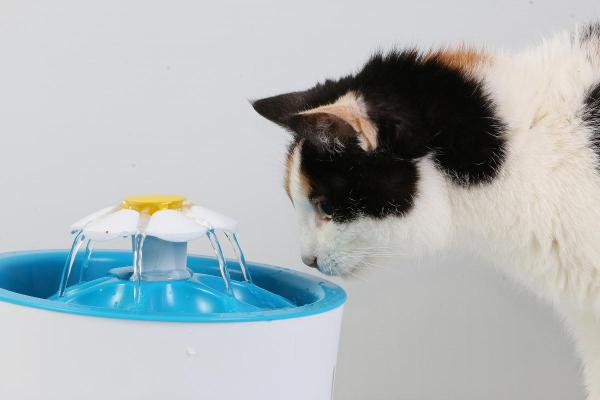
2. Soft food
Changing your cat's diet while they are recovering from hoarseness can help them heal better and more quickly. Dry food can worsen the irritation, especially if it is large. Some cats may eat anxiously and swallow without chewing, further increasing the irritation to the larynx. Wet food not only improves hydration, but it can be more soothing to eat. It is also more nutritious, helping the cat to recover their organism as they convalesce.
You can create a soft diet for your cat with laryngitis, but we need to be careful. Natural or raw food diets for cats pose a greater risk of food contamination, something which can be dangerous if the immune system is weakened. You should speak to a veterinarian qualified in nutrition if you ever want to make a drastic change to your cat's diet.
3. Air humidifier
Vocal cord irritation can worsen if the animal's environment is very dry. If you live somewhere with low humidity, the dry heat of summer can exacerbate laryngitis. A home treatment for hoarseness in cats can be as simple as improving the ambient humidity. Humidifiers are appliances which condition the air, resulting in a greater water saturation. You can place them strategically in the home to best help the cat.
You may not be able to invest in a humidifier, but there are other home treatments for cat laryngitis you can use. Bring the cat into the bathroom and put the shower on hot for about 10 minutes. This will allow steam to build up and the cat can inhale it to ease their throat. Some cats may react negatively to this scenario, so you should never force them. The negative experience will cause stress and be counterproductive to their recovery.
Learn about other signs a cat has laryngitis with our article on why a cat has a gurgling sound in their throat.
4. Honey
Honey is a natural remedy often used by humans for respiratory issues, including those which result in laryngitis. It has some anti-inflammatory and antimicrobial properties, although its efficacy is limited. It does often help to soothe a sore throat, especially when drunk with an infusion of honey, lemon and ginger. A similar infusion may help a cat suffering from laryngitis, but we need to be careful.
Honey is very high in glucose and fructose, something which should be limited in cats. Too much honey over a prolonged period of time can influence diseases such as diabetes and harm kidney function. We need to be careful when giving it to a cat. Only use sporadically and avoid if they already have an issues which can be exacerbated by sugars such as diabetes or obesity.
Our related guide explains more about what a diabetic cat should eat to best ensure their well-being.
5. Peace and quiet
For an animal to recover from any illness, it is important they are allowed to rest. Loud noises, bright light, drafts or sudden changes in temperature are all environmental factors that can stress your cat and hinder the healing process. Although we may want to provide our own comfort and affection during this time, it is also important we avoid pestering them. Do not pick them up or hug the cat while they are trying to rest.
Make sure your cat has a safe, comfortable and quiet space to recuperate. Many cats prefer this spot to be at a certain height, as it makes them feel more protected. If your cat is older or has difficulty jumping, it's best to avoid unnecessary stress that could worsen their health. Avoid somewhere with a lot of foot traffic. Provide them with a specialized cat bed with soft comforters. Include their favorite toy if they have one.
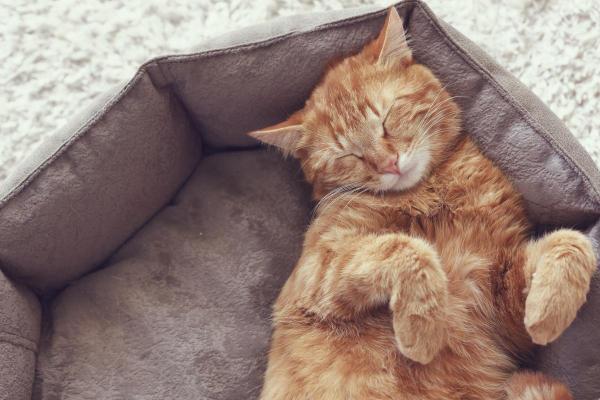
What to avoid in cat laryngitis home treatment
The above remedies can help your cat recuperate from the cause of acute laryngitis or work as periodic treatments for chronic issues. There are many sources that suggest you should use home remedies which have no proven scientific efficacy. These should be avoided. Not only might they be ineffective in treating the illness which causes laryngitis, they can impair medical treatment or even cause other types of harm.
With this in mind, you should avoid the following cat laryngitis home treatments:
- Essential oils: sometimes you can put a little menthol in a humidifier to help ease respiration. However, you should not give essential oils to cats directly. Some are too strong or ineffective, but others are toxic to cats and can cause harm. Common examples include tea tree and eucalyptus oil which are toxic in large amounts.
- Herbal supplements: many humans use herbal supplements as they believe they provide help with a range of ailments, especially those associated with weakened immunity. Many of them have no proven efficacy for human use and have even less evidence supporting their use in cats. They can prove harmful to felines if they contain compounds which are toxic to cats, even if they are safe for human use.
- Human medications: various drugs which are safe for human use are toxic to cats. We should never give human medications to our cat without strict instructions from a qualified veterinarian. Doing so could be fatal.
If your at has persistent laryngitis, it will last for more than 2 days. You should speak to a veterinarian after this time or as soon as you observe any worrying symptoms such as lethargy, appetite loss or seizures.
You can discover more about treating respiratory ailments with our article on cat sinus infection home remedies.

This article is purely informative. AnimalWised does not have the authority to prescribe any veterinary treatment or create a diagnosis. We invite you to take your pet to the veterinarian if they are suffering from any condition or pain.
If you want to read similar articles to Cat Laryngitis Home Treatment, we recommend you visit our Home Remedies category.


